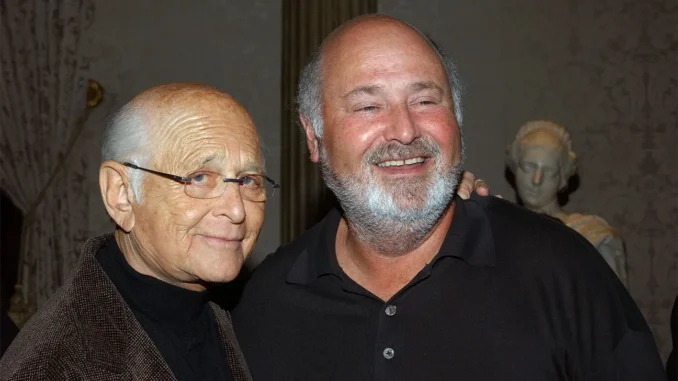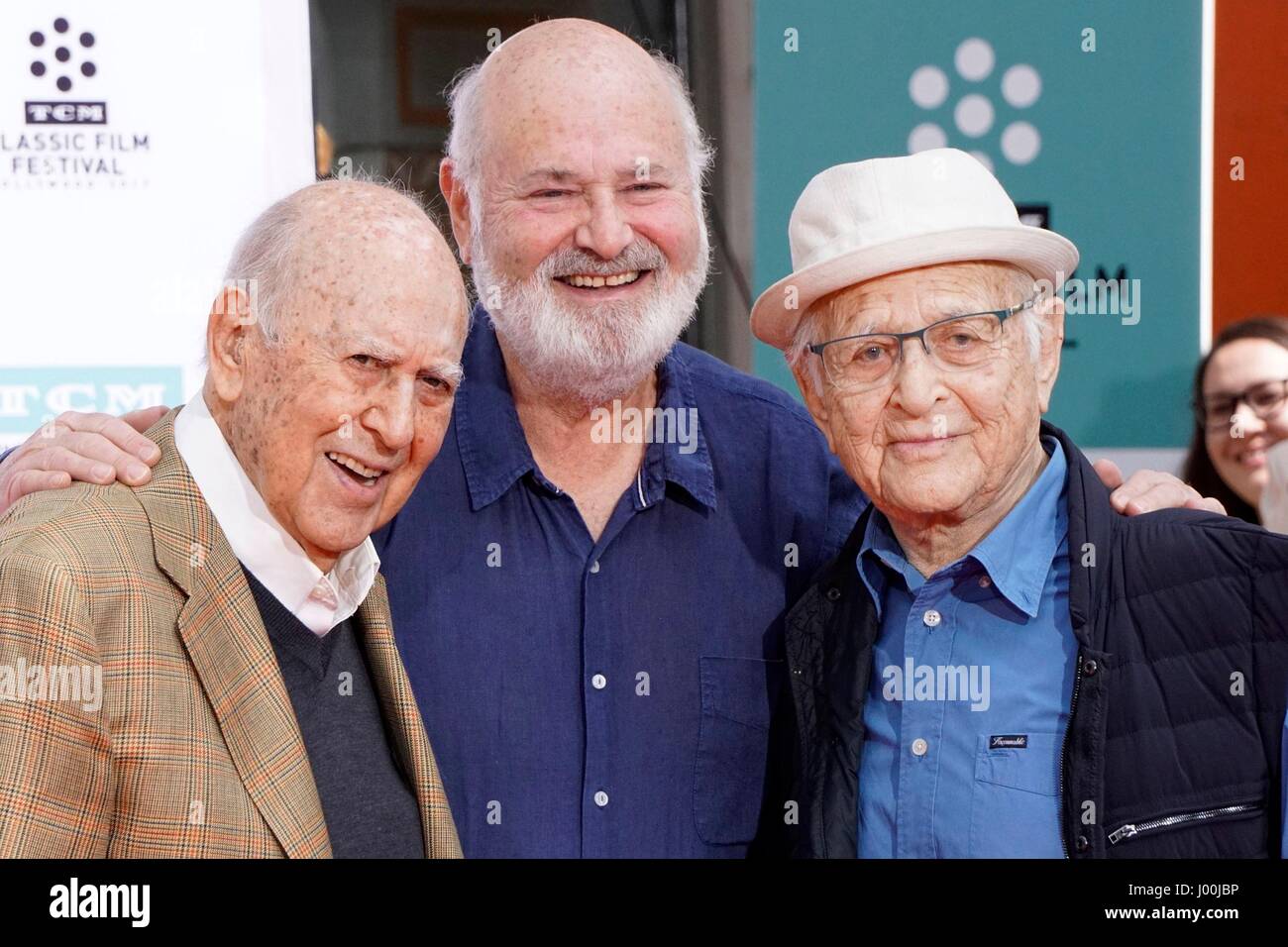
The man who played “Meathead” on ‘All in the Family’ recalls his lifelong friendship with the legendary producer, who died at the age of 101 on Dec. 5.

My dad, Carl Reiner, was working on Sid Caesar’s Show of Shows and Norman was writing for Colgate Comedy Hour, so they were both in New York. In those days, it was a small world of people who trafficked in sketch comedy. Mel Brooks, Larry Gelbart, Dom DeLuise — all these guys and their families would hang out together. My family and Norman’s family used to have summer houses near each other on Fire Island, and Norman had a daughter, Ellen, who was around my age, so we used to play together.
One day Ellen and I were playing jacks — I was teaching her how, explaining the rules, showing her what to do. Norman came over to watch and he started to laugh. Apparently, I was teaching her in a funny way, which he found hysterical. And he went over to my father and said, “Your kid, he’s really funny that kid!” And my father said, “What are you talking about? He’s so sullen! He’s such a quiet kid! He never talks.” But Norman was like, “No, no, he’s really funny.”

So, Norman was the first guy who recognized that I had any talent.
I would see Norman from time to time as I was growing up, when our families hung out or vacationed together. We’d go to Vegas or Palm Springs together, and they would spend a weekend just making each other laugh. They were all such close friends, for as long as I can remember.
But I became much closer to Norman when I was about 23 — that’s when I auditioned for All in the Family. I didn’t get the part at first. They did two pilots for ABC before they took it to CBS, and I didn’t get cast in either of those. The weird thing is, I auditioned with Penny Marshall. We weren’t married yet, but we were living together. I auditioned for Michael, and she auditioned for Gloria. I ultimately got the part, obviously, but she didn’t. Norman told her, “I can see you as Jean Stapleton’s daughter, but I can’t see you as Carroll O’Connor’s daughter.”
Norman was incredible to work with because he allowed everybody to contribute. There were no lines between actors, writers and directors. Everybody was in there pitching and trying to make the episode better. We had run-throughs on Wednesday, and we’d all give notes — “Let Carroll take that line and then Jean should do that line …” Everybody was participating. I remember one time the playwright Herb Gardner — he wrote A Thousand Clowns and I’m Not Rappaport — came to the set during a run-through. He sat and watched us all working together and couldn’t believe it — he’d never seen anything like it, because in the theater you can’t make changes to the dialogue unless the playwright agrees. He said, “This is insane! This is creative communism!”
All in the Family dealt with all sorts of controversial issues: the Vietnam War, racism, sexism, homosexuality, rape. There would be a lot of discussions about how we all felt about each of these subjects. Carroll O’Connor was probably the most liberal of us, which is ironic since he was playing the bigot. But Norman wasn’t really pushing one side. He wanted the audience to come away not knowing which side of an issue he was on.
:max_bytes(150000):strip_icc():focal(749x0:751x2)/carl-reiner-0adb83fdc849425f91fd02cd1b1e6a8d.jpg)
But he was fearless when it came to dealing with the network. This is a guy who flew 52 bombing missions over Nazi Germany during World War II, so he wasn’t going to be pushed around by a network executive. I remember one time the network told him they weren’t going to air an episode. I forget which one — maybe the one about Archie’s friend turning out to be a homosexual or else the one in which my character is impotent when he’s nervous about taking his final exams. But the network came to him and said they weren’t going to air it. And Norman said, “OK, that’s fine. I quit. I’m going to the Fiji Islands. Let me know if you change your mind.” The show was No. 1 in the ratings for five years straight, averaging 40 to 45 million viewers. The network changed its mind.

A couple of years after All in the Family, I was trying to get Spinal Tap made. We made a 20-minute video of what we had in mind for the movie and took it around to distributors and financiers. Everybody passed on it. We finally got some interest from a company called AVCO, but then AVCO got sold — to Norman and his business partner, Jerry Perenchio, who turned it into [Lear’s production house] Embassy Pictures. And Embassy dropped all AVCO’s projects, including Spinal Tap. But I convinced Alan Horn, who was running Embassy at the time, to let me pitch Norman and Jerry and the others at Embassy. I was like, “I know Norman — just put me in the room with him.” And Alan said fine, and he set up the meeting.
